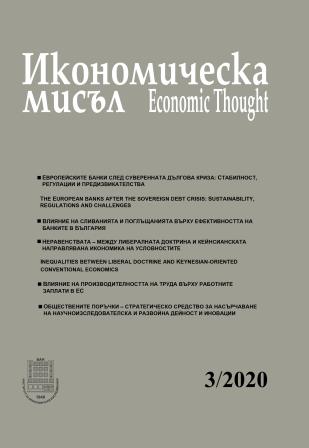Неравенствата – между либералната доктрина и кейнсианската направлявана икономика на условностите
Inequalities between liberal doctrine and Keynesian-oriented conventional economics
Author(s): Alessandro MORSELLISubject(s): Economy, National Economy, Supranational / Global Economy
Published by: Институт за икономически изследвания при Българска академия на науките
Keywords: Convention; Coordination; Decision; Inequality; Keynesian Conventional Economics; Oriented Conventional Economics; Finance; Uncertainty; Liberalism; Rationality
Summary/Abstract: The increase in inequalities over the last thirty years has been supported by the statements of liberal economic thought. According to liberalists, economic inequality is a necessary condition to achieve the objectives of economic growth and market efficiency. The failure of the Efficient-market hypothesis, with the financial crisis of 2007, brings forth the need to reconsider the theoretical basis of perfect individual rationality, taking into account more realistic models of individuals with limited rationality. This is how the role of conventions in decision making comes into play, and more specifically the chapter twelve of Keynes’ General Theory, through the analysis of anticipations in condition of uncertainty, where the conventional nature of the investment decision is highlighted. But the Keynesian convention is insufficient to better explain how financial markets operate, when the convention is lacking. Thus, the present paper proposes a review of the “Keynesian conventional economy”, updating it in the “oriented conventional economics”.
Journal: Икономическа мисъл
- Issue Year: 2020
- Issue No: 3
- Page Range: 86-117
- Page Count: 32
- Language: Bulgarian

